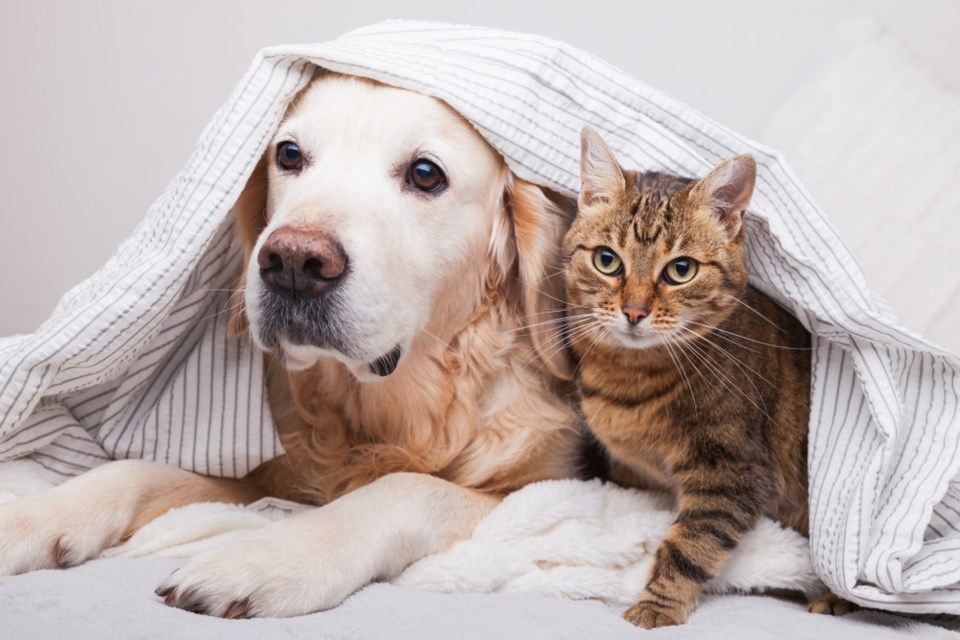On Monday, Dr. Nancy Turner, a veterinarian with ReadiVet, spent her first hour sitting by a backyard pool, treating a shih tzu for an eye infection. Later, she sat in the sun, giving an excitable rat terrier a check up in the grass of his own yard. When her hour with each of them was up, she and her vet tech, Jessica, packed everything up, sanitized, changed their masks and gloves, and cranked up some 2000s pop on the way to their next appointment across town. It was the kind of work day that she says didn’t even feel like work.
They also have a cat to see. He was having some trouble breathing, and his owner had called. A tiger in the Bronx zoo had recently been diagnosed with coronavirus. There was suddenly reason to be concerned.
As a mobile vet who provides in-home care to pets in Collin County during the COVID-19 shutdown, Dr. Turner understands their fear. These days, before she is even sent to a client, they have to be screened for COVID-19; clients who may have been exposed or are coughing can send pictures and videos of their pets, because they can. They practice social distancing during the animal’s exam, which are performed outside.
Dr. Turner takes it particularly seriously. Her one-year-old son has a congenital heart defect. As she puts it, “he is the person everyone is social distancing for.”
However, a week ago, the news hit that a 4-year-old Malayan tiger named Nadia had been infected with COVID-19 by a zoo employee who hadn’t been showing symptoms. The Associated Press reported that six other animals, tigers and lions, have also fallen ill, but all are expected to recover. The zoo has been closed since March 16, 11 days before the first tiger showed symptoms.
For a veterinarian, that means a lot of calls from patients’ owners. Most vets offices aren’t letting people inside the buildings, but are still taking calls and essential treatments that cannot wait, like surgical operations.
“There is zero evidence that suggest pets can transmit COVID-19 to us or other animals, and a human passing it to cat or dog is rare,” she says. “I’m not concerned about them giving it to us.”
For people who have tested positive COVID-19, there are precautions that can be taken to protect pets, but they are just that: precautions. As for the cat Dr. Turner saw, she was having a mild, common respitory infection. When it comes to pets, “there’s about a million things other than coronavirus that it could be,” Dr. Turner says in summary. As it’s a novel virus, this could change; we are still learning about COVID-19.
In 13 years as a vet, Dr. Turner has worked in many different clinics, but she says that Readivet, which has been open for about a year, is the most unique. They’re also remarkably well-positioned to provide medical care to pets in a time when most vet clinics are closed, except for special circumstances. Readivet is still able to operate–albiet in masks and gloves, and waving from across the room.
“[At-home care] keeps pets in their comfort zone and keeps that stress level down. Compared to a clinic situation, it’s night and day. Especially for cats. Cats are so much more comfortable at home. It’s been really nice,” she says.
Additionally, though they have a full-service facility in Dallas for x-rays, dental treatments, and surgery, most normal exams and annuals are done at the pet’s home. She has noticed that that extra convenience has led to an increased willingness to call if a pet seems ill. “We’re seeing pets sooner than we might have in a regular clinic, because you don’t have to go anywhere. It’s one less step–you don’t have to get a babysitter, or arrange for someone to pick your kid up from soccer practice. So we seem to be getting to pets in need of medical attention 24 or even 48 hours sooner, which can make a difference.”




